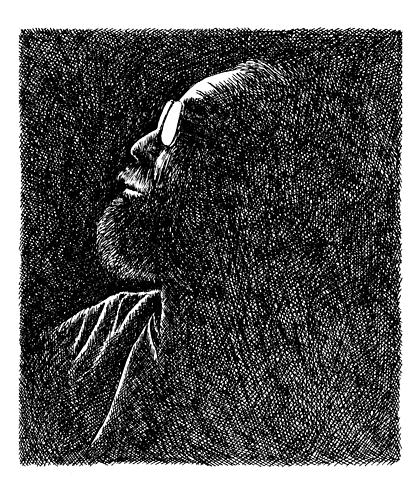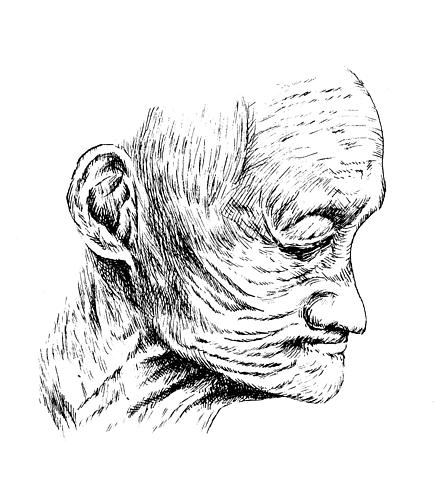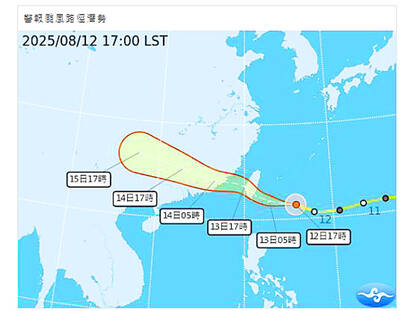Last week, Britain held extradition hearings for former Chilean dictator General Augusto Pinochet. Arrested in October 1998 while visiting London for medical treatments, Pinochet faces trial in Spain for torture and conspiracy to commit torture.
Also last week, an 83-year-old man was found guilty of genocide in Latvia and sentenced to seven years' imprisonment. Mikhail Farbtukh, a former Soviet security official, collected information on 31 families which led to their arrests and deportation from Latvia in 1941.
His victims were among the thousands deported after the Soviet Union annexed the Baltic state in 1940. Two more security officials also face similar genocide charges.

Hungarian trial
Earlier in September, a trial began in Hungary for Istvan Dudas, a former border guard colonel who allegedly ordered his soldiers to fire into a crowd of unarmed protesters in 1956, killing over 100 people. Three border guard soldiers will also be tried for carrying out the orders to shoot. Over 200 spectators who attended the protest in front of the Mosonmagyarovar barracks on Oct. 26, 1956 are expected to testify.
These events in the past month alone point to a growing recognition in international law and in the collective human conscience that individuals who commit grave violations of human rights must be brought to justice.

Neither time nor geography will shield such criminals from punishment.
Unfortunately, in Taiwan, those who ordered and perpetrated acts constituting crimes against humanity or even genocide remain beyond the reach of the law.
The legal and moral imperative to punish human rights abusers has long been reflected in the establishment of international criminal tribunals, from the Nuremberg Tribunal set up after World War II to the permanent International Criminal Court approved last year by a UN diplomatic conference in Rome.
Numerous treaties, judgments by regional human rights courts, and resolutions of the UN Commission on Human Rights have repeatedly affirmed the importance of prosecuting individuals who commit human rights violations.
It is common knowledge that the KMT regime committed gross violations of human rights during the early decades of their rule over Taiwan.
On Feb. 28, 1947, the beating by KMT police officers of a widow hawking cigarettes in Taipei erupted into a month-long massacre in which KMT soldiers systematically rounded up and executed Taiwanese students, professionals, and community leaders.
It is believed that 20-30,000 people were killed in what is now known as the "February 28 Massacre."
On May 20, 1949, the Taiwan Military Garrison Command (
According to the Taipei Municipal Documentation Commission, approximately 5,000-8,000 individuals were executed during the first five years of martial law in Taiwan.
Within the past decade, the government has deemed Feb. 28 a national holiday and has built memorials to commemorate this dark period of Taiwan's history. The Legislative Yuan has passed laws and established commissions to compensate victims of the February 28 Massacre and the "White Terror" period. And every year, on the anniversary of February 28, government officials appear in public looking dutifully remorseful.
Inevitably, the exasperated questions arise: Hasn't Taiwan already done enough to make up for the past? Isn't it time to leave the past behind and move forward into the future? But when compared to other countries, or to international standards, Taiwan has done shockingly and shamefully little.
The Joinet report
In 1997, Louis Joinet, a UN expert appointed to study the question of impunity for perpetrators of human rights violations, stated that victims of human rights abuses have three sets of rights:
* the right to know;
* the right to reparation;
* the right to justice.
The victims' "right to know" entails the State's corresponding "duty to remember." The Joinet report recommends that to fulfill its duty to remember, the State should establish an "extrajudicial commission of inquiry and ... preserve archives relating to human rights violations."
At least 15 countries have established truth commissions, including Argentina, Bolivia, Chad, Chile, El Salvador, Germany, Philippines, Rwanda, South Africa, Uganda and Uruguay.
These commissions have been critical in pressing governments to admit to their past wrongdoing and in enabling families to learn the fate of loved ones who had simply "disappeared."
In Taiwan, the government has neither established an independent truth commission to inquire into the scope of violations committed during the February 28 Massacre and the martial law period, nor has it taken steps to preserve documentation of these periods. Academics have also reported being denied access to critical historical records, which are primarily held by the Ministry of Defense and the Ministry of Justice.
Second, the Joinet report notes that the victims' right to reparation requires the state to "provide, on an individual basis, restitution, compensation, and rehabilitation." The Taiwan government's efforts in this area have made significant progress in recent years but still fall short of international standards. In 1995 and 1998, the Legislative Yuan passed two laws aimed at providing compensation for victims of the February 28 Massacre and the martial law period, respectively.
These two compensation laws, however, do not provide for full restitution or rehabilitation, as recommended by the UN Basic Principles and Guidelines on the Right to Reparation for Victims of Gross Violations of Human Rights and International Humanitarian Law. Compensation is awarded on the basis of an arbitrary points system without examining the extent of the actual harm suffered by the victim.
The Martial Law Period Compensation Law (
Finally, the Joinet report states that the victims' right to justice obliges the State to "investigate violations, to prosecute the perpetrators, and if their guilt is established, to punish them." Many countries -- including Australia, Canada, Croatia, France, Germany, Hungary, Israel, Italy Latvia, Poland and South Korea -- have prosecuted their own citizens or individuals found within their borders for genocide, war crimes, or crimes against humanity.
Even in China, two mothers recently filed a petition with the Supreme People's Procuratorate (最高人民檢察院) demanding an investigation of the June 4 massacre.
228 Massacre
To date, Taiwan has never investigated, let alone prosecuted, any government official for his involvement in the February 28 Massacre or in the human rights violations of the White Terror period.
These atrocities unquestionably constitute "crimes against humanity" which have been defined under international law as inhumane acts (such as murder, torture, or arbitrary detention) carried out by a State or an organization in a widespread or systematic manner.
Moreover, the targeting of ethnic Taiwanese for execution during the February 28 Massacre also arguably amounts to genocide.
Ironically, the Republic of China signed the Convention on the Prevention and Punishment of the Crime of Genocide in 1949 and ratified it in 1951.
Article 5 of the Genocide Convention requires States to "provide effective penalties for persons guilty of genocide."
Although the Legislative Yuan took the further step of legislation defining genocide as a crime in 1953, there has never been a public or a private prosecution brought under Taiwan's genocide laws.
Some mistakenly believe that prosecutions are no longer possible, since the events occurred so long ago that statutes of limitations would prohibit them.
International law recognizes, however, that crimes against humanity and genocide are of such gravity that the prosecution of such crimes cannot be barred by statutes of limitations. The Convention on the Non-Applicability of Statutory Limitations to War Crimes and Crimes Against Humanity has been in force since 1970.
The trial of Istvan Dudas and his accomplices, noted above, proceeded after the Hungarian Supreme Court ruled that the statute of limitations did not apply to the prosecution of crimes against humanity, even though the acts occurred in 1956.
Others argue that undertaking prosecutions of government officials may interfere with the process of democratization in Taiwan. Amnesty laws were introduced in Chile for precisely the same reason, to encourage the military junta to release their grip on power. Since Pinochet's arrest, however, Chilean courts have begun to reject the wisdom and validity of amnesty laws. In the past year, 25 military officers in Chile have been arrested and charged with murder, torture, and kidnapping; more arrests are expected next year.
Given the advanced stage of Taiwan's democracy, arguments about the potentially destabilizing effect of criminal prosecutions for crimes against humanity severely strain credibility.
Still others believe that seeking justice for the victims of the February 28 Massacre and the White Terror Period will only exacerbate ethnic tensions in Taiwan. On the contrary, in countries such as the former Yugoslavia and Rwanda, where ethnic conflict has led to enormous human tragedy, the international community has learned that the only way to end the cycles of retribution and bloodshed is by assigning guilt where it belongs -- to the individual perpetrator rather than to the collective group. In the aftermath of the horrific atrocities in these states, the United Nations did not urge a policy of forgive and forget. Instead, it immediately established tribunals to bring to justice those individuals responsible for ethnic cleansing.
In recent years, Taiwan has grown increasingly vocal in its demand for respect from the international community and for equal treatment under international law.
At the same time, the Taiwan government's persistent failure to prosecute those who committed human rights abuses in the past runs counter to the conscience of the international community and to the established norms of international law.
The flourishing of impunity in Taiwan is a disgrace to the country's democracy and to its legal system.
Phyllis Hwang (

GET TO SAFETY: Authorities were scrambling to evacuate nearly 700 people in Hualien County to prepare for overflow from a natural dam formed by a previous typhoon Typhoon Podul yesterday intensified and accelerated as it neared Taiwan, with the impact expected to be felt overnight, the Central Weather Administration (CWA) said, while the Directorate-General of Personnel Administration announced that schools and government offices in most areas of southern and eastern Taiwan would be closed today. The affected regions are Tainan, Kaohsiung and Chiayi City, and Yunlin, Chiayi, Pingtung, Hualien and Taitung counties, as well as the outlying Penghu County. As of 10pm last night, the storm was about 370km east-southeast of Taitung County, moving west-northwest at 27kph, CWA data showed. With a radius of 120km, Podul is carrying maximum sustained

President William Lai (賴清德) yesterday criticized the nuclear energy referendum scheduled for Saturday next week, saying that holding the plebiscite before the government can conduct safety evaluations is a denial of the public’s right to make informed decisions. Lai, who is also the chairman of the Democratic Progressive Party (DPP), made the comments at the party’s Central Standing Committee meeting at its headquarters in Taipei. ‘NO’ “I will go to the ballot box on Saturday next week to cast a ‘no’ vote, as we all should do,” he said as he called on the public to reject the proposition to reactivate the decommissioned

US President Donald Trump on Friday said that Chinese President Xi Jinping (習近平) told him China would not invade Taiwan while Trump is in office. Trump made the remarks in an interview with Fox News, ahead of talks with Russian President Vladimir Putin over Moscow’s invasion of Ukraine. “I will tell you, you know, you have a very similar thing with President Xi of China and Taiwan, but I don’t believe there’s any way it’s going to happen as long as I’m here. We’ll see,” Trump said during an interview on Fox News’ Special Report. “He told me: ‘I will never do

EXCEPTIONS: Some people could be allowed to reclaim citizenship for humanitarian reasons or because of their contributions to the nation, the interior ministry said Taiwan would soon unveil new rules banning Taiwanese residents of China from reclaiming their citizenship if they participated in Beijing’s propaganda activities, the Ministry of the Interior said on Monday. The measures were drafted following President William Lai’s (賴清德) March 13 directive that the government counter China’s espionage and influence campaigns aimed at undermining Taiwan’s sovereignty, the ministry said in a preview of the rules. The changes would affect Taiwanese who lost their citizenship after becoming permanent residents of China or obtaining passports issued by China, it said. Under the measures, former Taiwanese nationals living in China who had made statements denying the